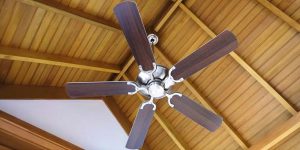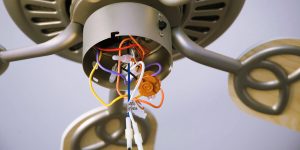Ceiling fans play a major role in creating comfort in our homes, helping regulate the temperature and improve air circulation, creating the most comfortable atmosphere possible. The motor is a key component when choosing the right ceiling fan. In this article, I will compare ceiling fan motors. You will learn about the differences between AC vs. DC motors and figure out how these differences can affect your choice.
Understanding AC motors
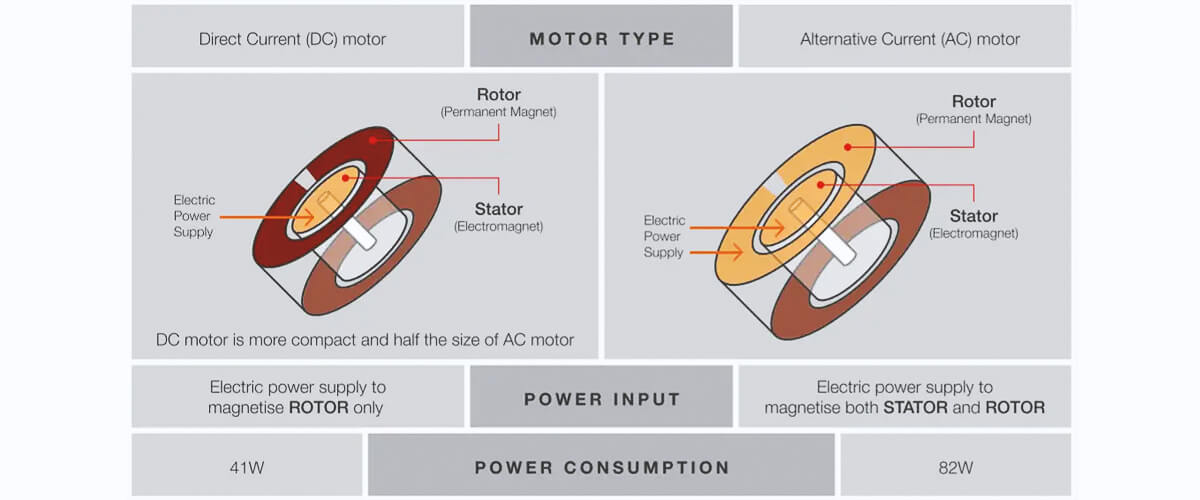
I’ve seen firsthand how AC (alternating current) motors have been the go-to choice for many years. These traditional motors transform the alternating current from your home’s electrical system into mechanical energy that powers the fan blades. So let’s dive into some of AC motors’ key features and differences to better understand their role in ceiling fan operation.
Advantages of fans with AC motors
- Affordability: In my experience, ceiling fans with AC motors are generally more budget-friendly compared to their DC counterparts.
- Availability: Since AC motors have been around for a long time, you’ll find a wider variety of models and designs to choose from.
- Reliability: AC motors are known for their durability and consistent performance, making them a solid choice for long-term use.
Disadvantages of fans with AC motors
- Efficiency: AC motors consume more energy than DC motors, leading to higher electricity bills.
- Noise: When I tested various fans, I noticed that AC motors produce more noise than DC motors.
Delving into DC motors
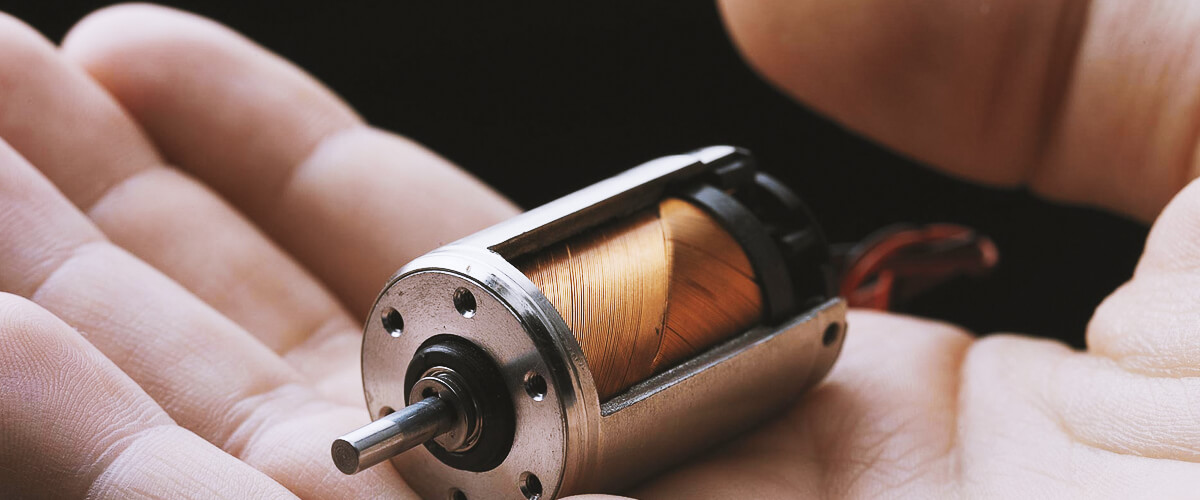
Direct current (DC) motors are a modern alternative to traditional AC motors. These innovative motors first convert alternating current from your home’s electrical system to direct current, which then powers the fan. Let’s take a look at some of the important features and differences that distinguish DC motors.
Advantages of fans with DC motors
- Energy efficiency: DC motors use up to 70% less energy than AC motors, which can translate into significant cost savings over time.
- Quiet operation: Fans with DC motors tend to operate more quietly, making them an excellent choice for bedrooms or other spaces where noise may be a concern.
- Speed control: DC motors usually offer a wider range of speed settings, providing more precise control over airflow and comfort.
Disadvantages of fans with DC motors
- Price: DC motor ceiling fans typically have a higher price tag than AC motor fans.
- Limited options: As DC motors are a relatively newer technology, fewer models and designs may be available on the market.
Making the decision: AC vs. DC ceiling fan motors
As someone who has tested and used various ceiling fans over the years, I know how important it is to make the right choice for the motor. When deciding between AC and DC motors for your ceiling fan, it’s essential to consider the following factors:
| Factor | AC Motor Fans | DC Motor Fans |
|---|---|---|
| Budget | More affordable, suitable for tight budgets | Typically more expensive |
| Energy Efficiency | Higher energy consumption | Up to 70% more energy-efficient |
| Noise Level | Tend to be noisier | Quieter operation, ideal for bedrooms |
| Design Variety | Wider range of models and designs | Limited options due to newer technology |
By using these basic criteria to make your decision, you can quickly determine your needs and preferences.
Conclusion
Both AC and DC motor ceiling fans have their advantages and disadvantages. Ultimately, your choice will depend on budget, energy efficiency, noise levels, and design preferences. From my experience, I found DC motor fans offer a more energy-efficient and quieter solution, which might suit most people. However, an AC motor fan might be the better option if you work with a tight budget or desire a specific design.
By carefully considering these factors and weighing the pros and cons of each motor type, you can make an informed decision that best meets your needs and creates a comfortable environment in your home.

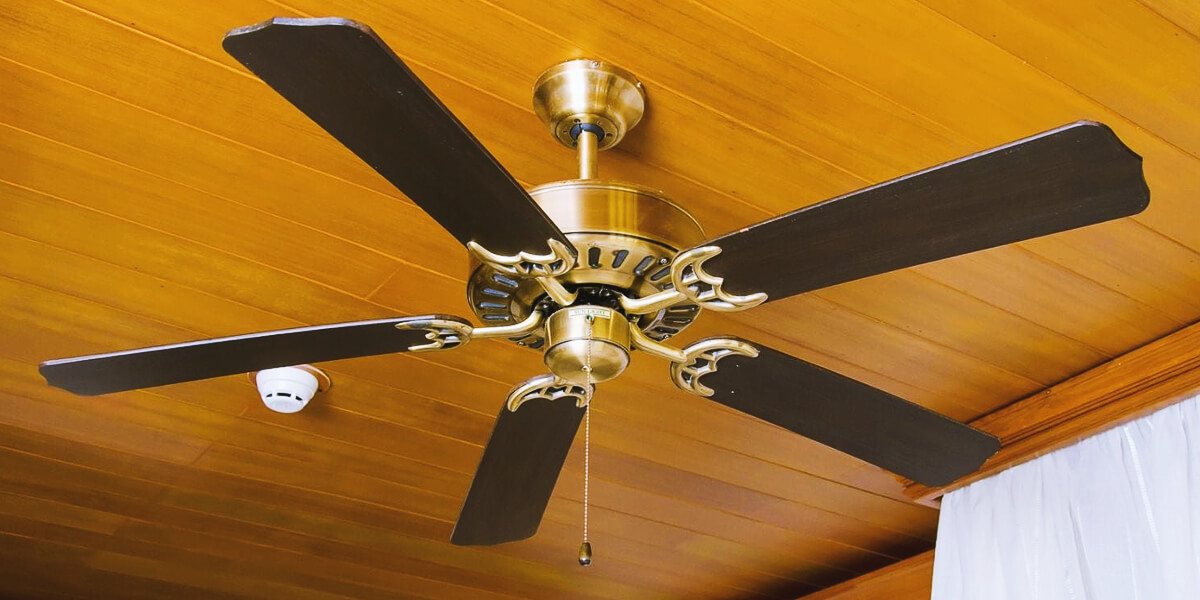
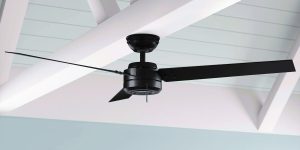
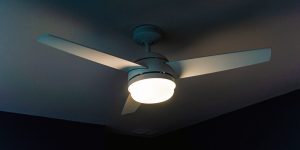

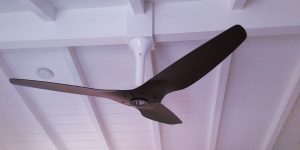
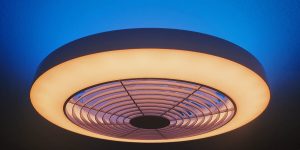

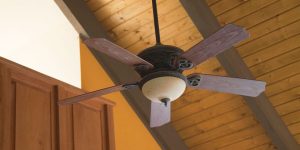

![How Many Blades Should a Ceiling Fan Have? [3 vs 4 vs 5-Blade]](https://www.kennedyproductions.com/wp-content/uploads/2023/08/does-the-number-of-blades-on-a-ceiling-fan-matter-300x150.jpg)
